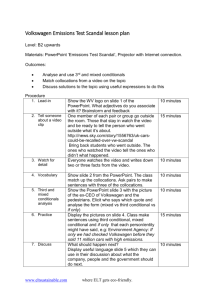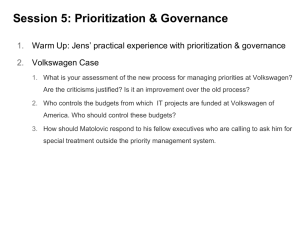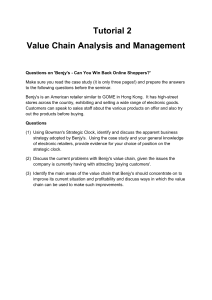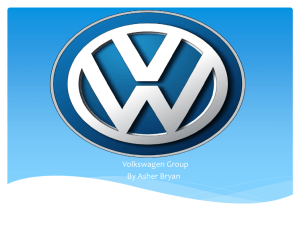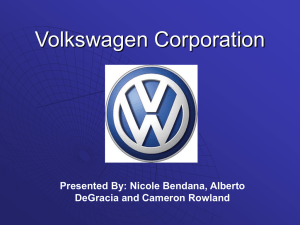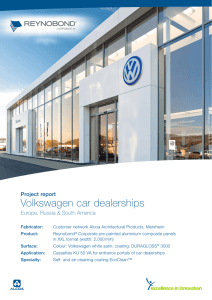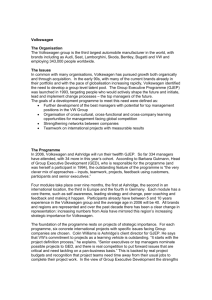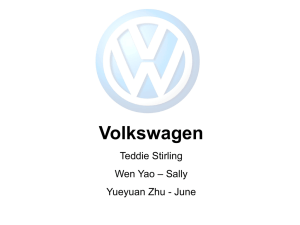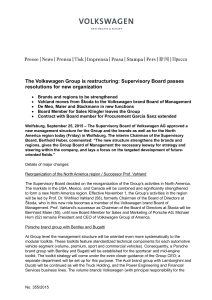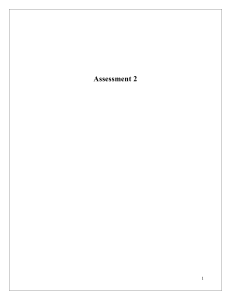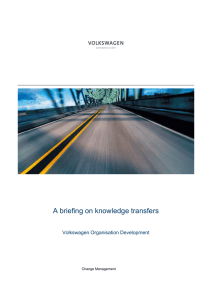TROISIEME CONCOURS ENA 2015 ANGLAIS TEXTE N°1 After
advertisement
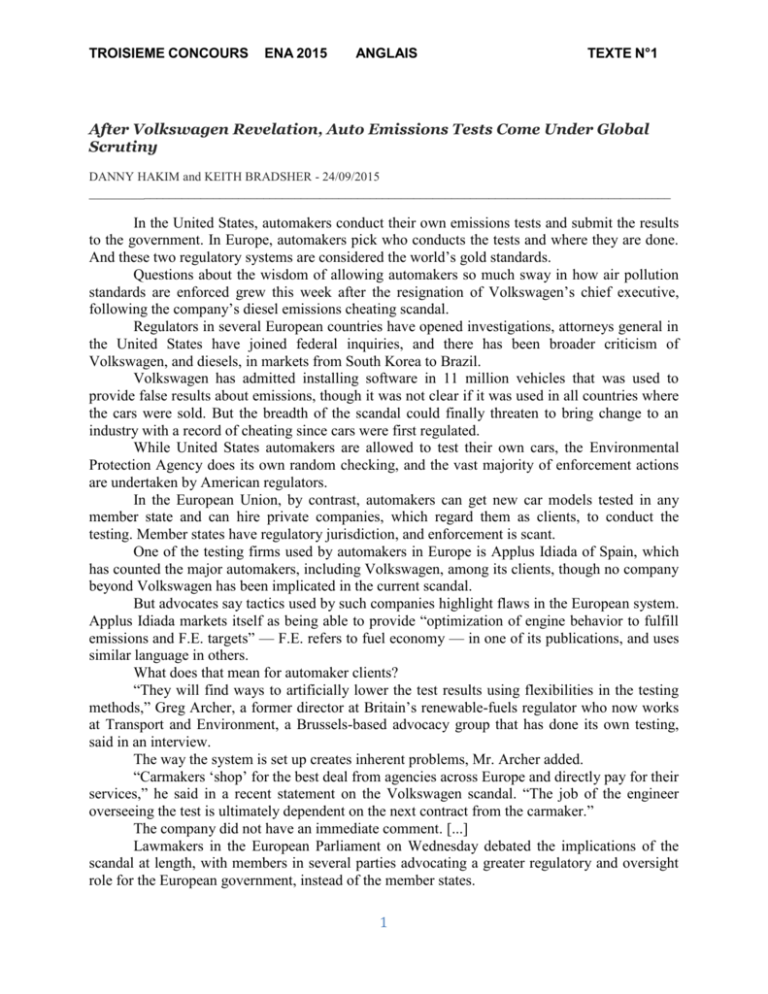
TROISIEME CONCOURS ENA 2015 ANGLAIS TEXTE N°1 After Volkswagen Revelation, Auto Emissions Tests Come Under Global Scrutiny DANNY HAKIM and KEITH BRADSHER - 24/09/2015 ____________________________________________________________________________________________ In the United States, automakers conduct their own emissions tests and submit the results to the government. In Europe, automakers pick who conducts the tests and where they are done. And these two regulatory systems are considered the world’s gold standards. Questions about the wisdom of allowing automakers so much sway in how air pollution standards are enforced grew this week after the resignation of Volkswagen’s chief executive, following the company’s diesel emissions cheating scandal. Regulators in several European countries have opened investigations, attorneys general in the United States have joined federal inquiries, and there has been broader criticism of Volkswagen, and diesels, in markets from South Korea to Brazil. Volkswagen has admitted installing software in 11 million vehicles that was used to provide false results about emissions, though it was not clear if it was used in all countries where the cars were sold. But the breadth of the scandal could finally threaten to bring change to an industry with a record of cheating since cars were first regulated. While United States automakers are allowed to test their own cars, the Environmental Protection Agency does its own random checking, and the vast majority of enforcement actions are undertaken by American regulators. In the European Union, by contrast, automakers can get new car models tested in any member state and can hire private companies, which regard them as clients, to conduct the testing. Member states have regulatory jurisdiction, and enforcement is scant. One of the testing firms used by automakers in Europe is Applus Idiada of Spain, which has counted the major automakers, including Volkswagen, among its clients, though no company beyond Volkswagen has been implicated in the current scandal. But advocates say tactics used by such companies highlight flaws in the European system. Applus Idiada markets itself as being able to provide “optimization of engine behavior to fulfill emissions and F.E. targets” — F.E. refers to fuel economy — in one of its publications, and uses similar language in others. What does that mean for automaker clients? “They will find ways to artificially lower the test results using flexibilities in the testing methods,” Greg Archer, a former director at Britain’s renewable-fuels regulator who now works at Transport and Environment, a Brussels-based advocacy group that has done its own testing, said in an interview. The way the system is set up creates inherent problems, Mr. Archer added. “Carmakers ‘shop’ for the best deal from agencies across Europe and directly pay for their services,” he said in a recent statement on the Volkswagen scandal. “The job of the engineer overseeing the test is ultimately dependent on the next contract from the carmaker.” The company did not have an immediate comment. [...] Lawmakers in the European Parliament on Wednesday debated the implications of the scandal at length, with members in several parties advocating a greater regulatory and oversight role for the European government, instead of the member states. 1 TROISIEME CONCOURS ENA 2015 ANGLAIS TEXTE N°1 “Of course that will be a big fight with the member states,” said Bas Eickhout, a Dutch Green Party member who sits on the Parliament’s committee on Environmental, Public Health and Food Safety. He said he wanted the European Commission, the government’s executive branch, to move quickly on plans to put new emissions testing into effect that will take place at independent laboratories. And he wanted commission officials to quickly determine if the Volkswagen software was used to evade European tests, something that has still not been disclosed by Volkswagen. He said some lawmakers also lamented that Europe lagged on enforcement, leaving American regulators to take on such cases. “We are better in talking. The U.S. is better in acting,” he said, adding, “That’s a bit of a painful conclusion.” [...] © nytimes.com September 25, 2015 http://www.nytimes.com/2015/09/25/business/international/volkswagen-emissions-pollutionregulations.html 2
